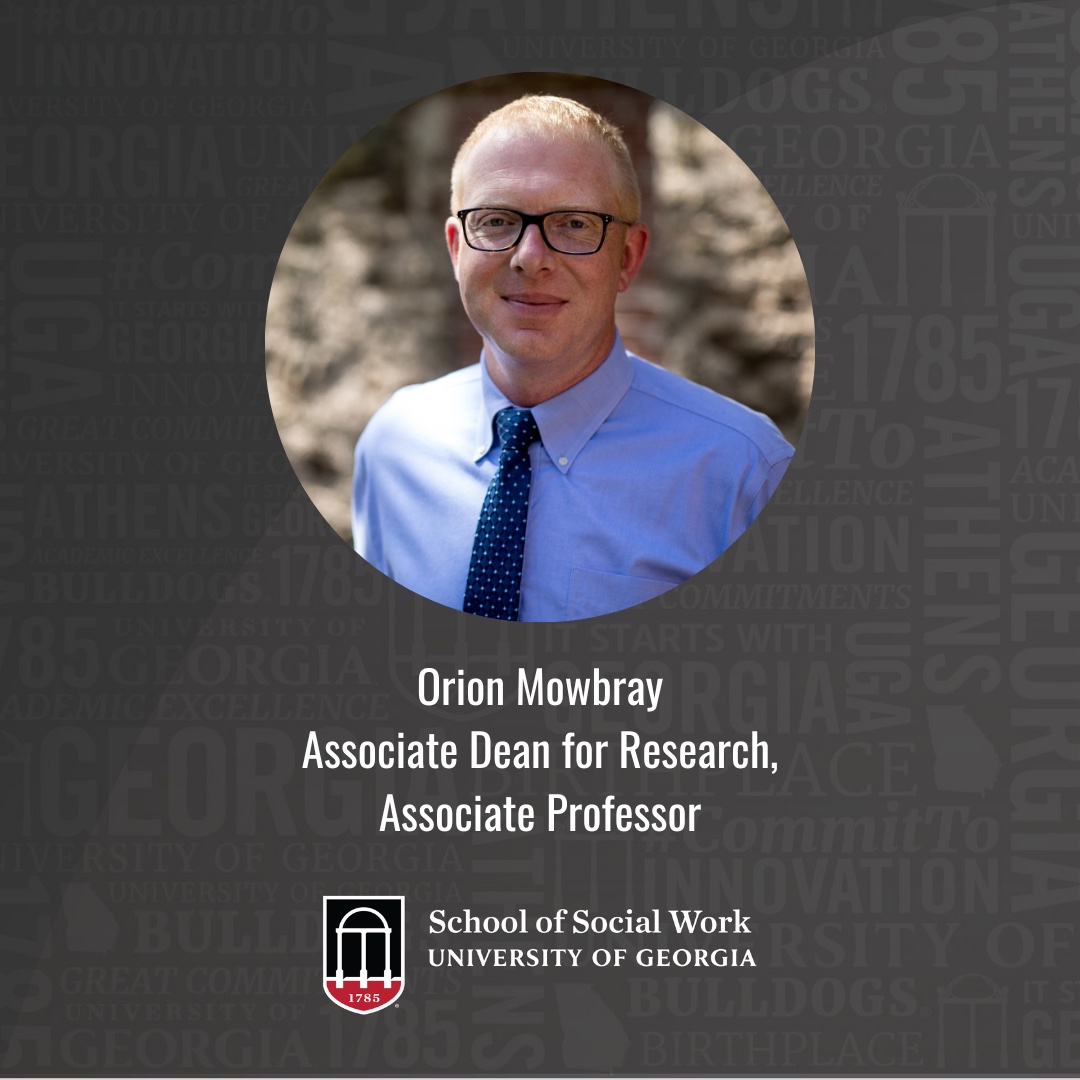The dynamic between law enforcement and social work has always been rather sensitive, but the work by Orion Mowbray, associate dean for research at the University of Georgia School of Social Work, has helped to bridge any existing gap between these two worlds.
Three years ago, Mowbray and a team of researchers and students completed a comprehensive analysis of Georgia’s Day Reporter Centers (DRC), a series of facilities that provide programming and services to assist various people on parole or probation who are dealing either with substance abuse issues or were incarcerated due to a drug charge.
That work resulted in the development of a comprehensive assessment tool to better evaluate the DRCs and produced a series of substantive policy recommendations aimed to streamline and improve service delivery at the centers.
This analysis of DRCs is required every three to four years, and earlier this summer Mowbray and his team received another grant from Georgia’s Department of Community Supervision (DCS) to conduct an updated evaluation. As they did previously, the $535,000 grant will allow them to visit the more than 35 DRCs across the state to better understand the challenges and needs of each facility.
“We have to redo the evaluation, but we also have to redesign the process based on changes made in the last three years,” Mowbray said. “Right now, we’re working on revising the assessment instrument with the support of DCS. We’ll do that through the fall with some pilot testing, making sure interviewers ask the right questions and making sure they are reliable. Once January hits, we’ll go full scale and conduct these evaluations across the whole state.”
Collaborating with Mowbray from SSW for this year’s evaluation are Michael Robinson, associate professor and co-PI; Anna Scheyett, professor and co-I; Ed Risler, professor emeritus; Jeff Skinner, project coordinator; and Oluwayomi Paseda, Ph.D. student at SSW.
During the last analysis, Mowbray said his team was able to show that DRCs that scored higher on the evaluation tool prepared by UGA tended to have better outcomes for their participants. These outcomes included fewer positive drug tests and individuals moving through the program faster.
The team also provided three key recommendations to DCS that centered on enhancing service offerings and better aligning various elements of record-keeping and patient care. For instance, the assessment process for program participants varied from facility to facility, which led the UGA team to suggest the development of a uniform assessment tool that could be easily accessible.
Another key recommendation focused on improving coordination between services, such as job training or educational offerings. Most of those were provided through a collaboration with a technical college or other third-party partner, but many of those agreements were informal. As such, Mowbray suggested formalizing these arrangements through memorandums of understanding and other more official agreements.
The team also recommended that programming like family support services and aftercare support be enhanced.
Mowbray said the partnership between the SSW team and the leadership and staff at DCS has been a positive, constructive one, offering learning opportunities for both sides. It enabled them to break down those perceived barriers between law enforcement and social work and foster better collaboration that yields better results for DRC participants.
For instance, SSW has a data sharing agreement with DCS, enabling the team to look at other research questions aside from the evaluation component. In the last study, Mowbray’s team was able to produce two publications from that gathered data, something DCS was very supportive of.
“DCS has been very willing to confront and address these changes,” Mowbray said. “Some of the things we found in the report, we didn’t invent. They were on DCS’s radar for a while. A lot of the organizations were doing them, but perhaps not in a consistent way. They’ve been a great partner for us, and we’re eager to continue to work with them.”

